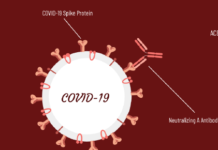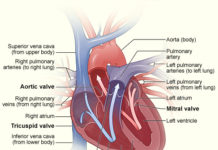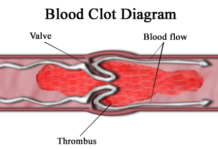How many times have you heard someone say breakfast is the most important meal? Haley stated that she eats frosted flakes cereal every morning and drinks a bottle of water. Lauren said she eats yogurt with granola. However, Giulianna doesn’t eat or drink anything, and she’s not that unusual.

“Approximately 8 to 12% of all school-aged kids skip breakfast. By the time they are in their adolescence ages, 20 to 30) have given up completely on breakfast,” according to William Cochran, M.D., member of the American Academy of Pediatrics (AAP) Committee on Nutrition and vice chairman of the Department of Pediatrics of the Geisinger Clinic in Danville, PA.
As teens get older, they are up late studying or participating in extracurricular activities, and would rather sleep for a few more minutes than get up to eat breakfast. According to Marcie Beth Schneider, M.D., a member of the AAP’s Committee on Nutrition and an adolescent medicine physician in Greenwich, CT, many teenagers are not getting enough sleep. She says they often wake up too tired or too nauseous to get out of bed, two factors that make it less likely they will eat breakfast.
Experts, such as Schneider, believe that some teenagers, especially females, may be bypassing the morning meal in an effort to control their weight. The weight loss reasoning couldn’t be less accurate. A 2008 study in the journal Pediatrics found that adolescents who ate breakfast on a day-to-day-basis had a lower body mass index—a number determined by an individual's body weight divided by the square of his or her height—than teens who never ate breakfast.
People think that skipping breakfast will cut down on their daily calories, according to Jamie Joyner, a registered and licensed dietician at Sports Enhancement Group in Chesterfield, MO. In fact, missing breakfast can cause a person to become hungry later in the day and result in snacking on unhealthy foods that are high in calories and in fat. Not eating breakfast can cause a person to become desperate for food by midmorning, causing them to double their normal breakfast intake. What’s more, not eating breakfast can slow down the rate at which your body burns those calories, added Joyner.
“Breakfast also helps you regulate your metabolism,” Joyner said. “Skipping breakfast can cause your metabolism to drop in order to conserve the energy that it already has. On the other hand if you eat breakfast, your metabolism can use the fuel you are giving it more efficiently and will help to keep your metabolism steady throughout the day. ”
According to Susan Kraus, registered dietitian at the Hackensack University Medical Center in New Jersey, studies have shown that kids do better in school when they’ve eaten a high-fiber, low glycemic index (GI) breakfast like oatmeal, which is a complex carbohydrate that the body breaks down slowly unlike a sugary cereal. GI is a measure of the effects of carbohydrates on blood sugar levels. After a night’s sleep, our bodies need a healthy nutritious breakfast full of vitamins that will hold us over until the next meal. The best kinds of breakfast foods recommended are carbohydrates. That’s because each carbohydrate has a GI rating that corresponds to the type of sugar that they create in the body. Foods with lower index numbers take longer for our bodies to break down. A lower GI is essential to breakfast in the morning because foods with lower GI can make you feel more full.
In a 2009 study, Schneider found that a breakfast should be made up of all the food groups represented. But anything nutritious someone grab son their way out the door works. “What’s important is that they get some healthy carbohydrates, which provide energy,” explains Schneider.
Joyner, the dietician, added that, “Protein is another important thing to include in breakfast. You can get protein in a variety of foods such as eggs, lean meats like Canadian bacon, and low-fat dairy products such as low-fat milk, yogurt and cheese. Protein also helps you to feel full and slow digestion. Limit intake of fried foods, grease, and extra gravies and sauces. These foods are high in the unhealthy saturated and trans fats.”
Joyner also said that there are a few basic components that make up every healthy breakfast. “The first thing is fiber. Breakfast is a great time to get a good source of fiber, whether it is from a whole grain cereal, whole wheat bread or fruit. If you are doing a cereal, I would say to look for cereal with a minimum of 3 grams of fiber per serving and less than 10 grams of sugar per serving. Fiber is important because it helps keep you feeling full for longer and has more nutrients than refined grains do.”
And there is evidence that breakfast fuels your brain as well as your body. Minnesota schools incorporated a program in 1994 known as Minnesota’s Fast Break to Learning Breakfast Program in which a free or low-cost breakfast was served as the school day started. According to the Minnesota Department of Children Learning and Families, study results showed that “On 3 out of 4 reading and math tests on the Minnesota Comprehensive Assessment Test (MCAT) 3rd and 5th graders in Fast Break to Learning schools improved academic achievement more than the control group of schools.More than 97% of principals strongly agreed their school benefited from the program, with decreased negative behavior and tardiness as the top benefits mentioned.”
| Related story: Eating Health Lunches |
Eating breakfast improves concentration, problem-solving ability, mental performance, memory and mood, according to Louisiana State University Agricultural Center nutritionist Elizabeth Reames. She also stated that breakfast eaters also score higher on tests and have better concentration and muscle coordination.
Joyner, who has worked with athletes at Saint Louis University, sees some of those effects first-hand. “Eating breakfast helps improve alertness and attention, which are two very helpful things—not just for students, but for everyone.” Courtney Meek

This work is licensed under a Creative Commons Attribution-NonCommercial-NoDerivs 3.0 Unported License














I skip breakfest often and didn’t realize how important it. I don’t not eat breakfast for weight lost. I don’t eat it because of I want to sleep. How much effect does not eating breakfast have on your health?
I thouroughly enjoyed this article. i skip breakfast everyday also. not because of weight loss or anything like the article said, but because of how if i don eat, it will make my stomache hurt and make me feel nauseous
It’s good to know that just eaing breakfast has such positive affects. Why is it that people ages 20-30 usually give up on breakfast?
I really liked this article it was helpful to see an example of what someone’s breakfast should really look like.
How many people skip breakfast? What is the rate between men and women? It is a very informative article and it is all put together very well.
Should breakfast be the biggest meal of the day?
How many people actually skip breakfast a day? This is a very informational article and it’s good.
I skip breakfast alot and I didnt notice that why I feel so hungry during the evening.I would like to know how I could find the energy to wake up in the morning and it breakfast?
This is very informative considering that I often find myself skipping breakfast in the morining.
Very Great , i loved the information about the percent.